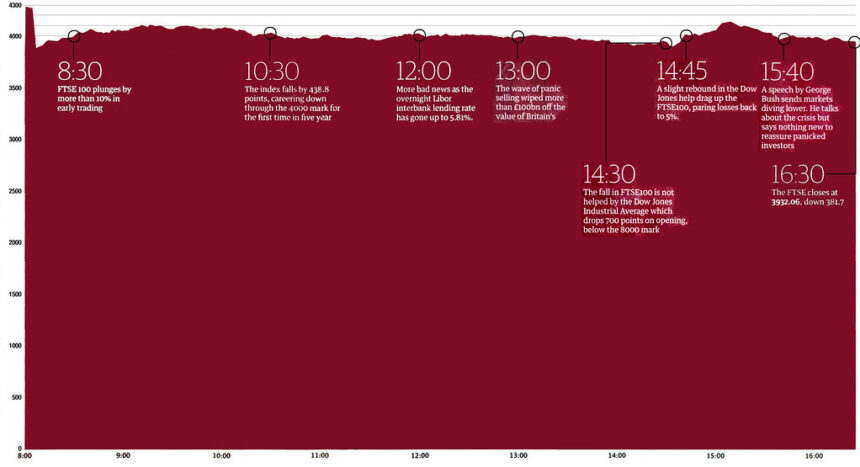The FTSE 100 enjoyed a good year, boosted by the Labour Party’s landslide win in the general elections and the Bank of England beginning to lower interest rates.
Blue-chip UK index has risen 5.35% in the past year after hitting an all-time-high of 8,474.41 point in May.
The index has risen more slowly than the S&P 500, which is up nearly 25% for the year to date. However, the performance of 2024 marks the best showing since 2021 when it soared 14.3%. This followed gains of 0.9% and 3.8% from 2022 and 2023.
What do investors think about the FTSE 100 by 2025?
According to a recent survey conducted by Jefferies on the market outlook, more than two thirds of respondents believed that the FTSE 100 will be higher at the end of 2025. This is up from less than 50% last year.
Only 8% of respondents expected the FTSE 100 would be lower this year, compared with 22% last.
Institutional Investors voted the most in favor of the new market, with 27% predicting a lower level in 2024 and only 9% expecting the same in 2025. This shows their optimism about the future.
Could FTSE 100 reach 9,000 points?
AJ Bell brokerage believes that FTSE will reach 9,000 points at the end of 2025. This is a 10% increase.
Russ Mould, AJ Bell’s investment director, says that “prevailing gloom”, has led to UK equities looking undervalued based upon earnings and yield metrics.
Mould adds that “political uncertainty” should be subsiding in the UK now, with the Labour government having a huge majority. This is a good comparison to Europe where coalition governments are falling apart at a rate similar to the Conservative Party’s recent sackings of their leaders, chancellors and prime ministers.
It’s too early to judge the first Budget of the new chancellor, but it is a good start. The fiscal deficit facing the country was hardly mentioned in the US campaign, and now, the topic has come home to France.
UBS’s forecast for the FTSE 100 in 2025 is between 9,800 and 9,900. This outcome will depend on higher commodity prices as well as better global growth.
Around 25% of FTSE 100 earnings comes from commodities.
UBS’s pessimistic scenario, however, is a decline towards 6,600. This could happen if persistently higher inflation forces the Bank of England (BoE) to keep rates high for longer. This would put downward pressure on the equity valuations as well as the economic growth prospects.
UBS said that UK equity valuations were not as attractive at first glance, given their reliance on energy and financials. These sectors are valued at 8.4x each.
The report aimed to show that the earnings of these sectors may be threatened by low oil and gas prices, as well as declining interest rates.
What will the FTSE 100 be in 2025? The ICD first published the article Analysts weigh in
This site is for entertainment only. Click here to read more






